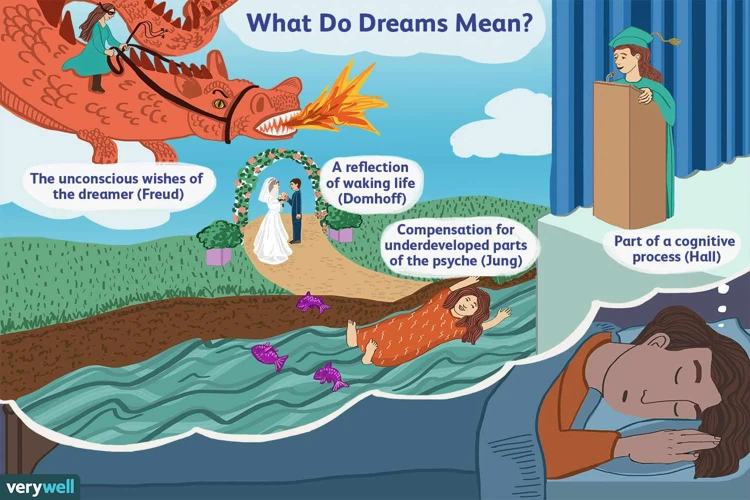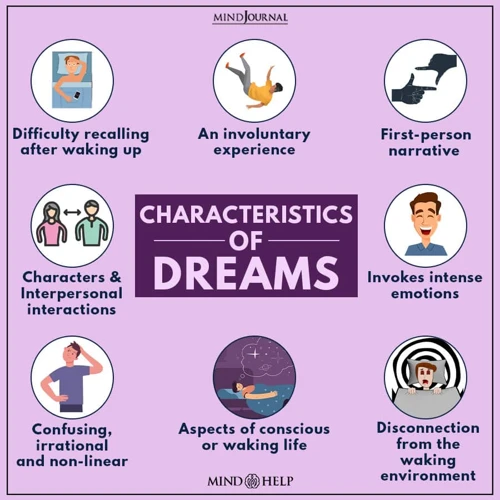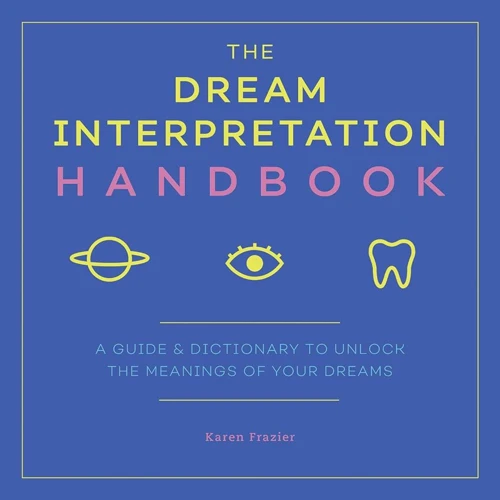Unraveling the Mysteries: Exploring the Meaning and Types of Dreams
Have you ever woken up from a dream, feeling bewildered and intrigued by its meaning? Dreams have long fascinated and puzzled humanity, serving as a gateway to our subconscious minds and providing glimpses into our deepest desires and fears. In this comprehensive guide, we will delve into the significance of dreams, the various types of dreams we may experience, and how to interpret their hidden messages. From lucid dreams to prophetic dreams, nightmares to daydreams, we will unravel the mysteries and shed light on the enigmatic realm of our sleeping minds. So sit back, relax, and prepare to embark on a journey of self-discovery as we navigate the intricate world of dreams.
The Significance of Dreams

Dreams hold a deep and profound significance in our lives. They provide a window into our subconscious mind, allowing us to explore our deepest emotions, fears, and desires. Through dreams, we can gain insights into unresolved issues, tap into our creativity, and even receive guidance and messages from a higher power. Dreams have been studied and analyzed for centuries, with various cultures and belief systems attributing different meanings to different dream symbols and scenarios. Whether we remember our dreams or not, they play a crucial role in our overall well-being and self-discovery. So, let’s delve into the fascinating realm of dreams and uncover the mysteries they hold.
Types of Dreams

Dreams come in various forms, each with its own unique characteristics and meanings. Lucid dreams allow us to become aware that we are dreaming, giving us the ability to control and manipulate our dream experiences. Prophetic dreams possess a mysterious quality, seemingly offering glimpses into the future or foretelling significant events. On the other hand, nightmares can be unsettling and terrifying, often reflecting our deepest fears and anxieties. Recurring dreams occur repeatedly, often conveying unresolved issues or recurring patterns in our lives. Epic dreams are vivid and highly elaborate, transporting us into surreal landscapes and narratives. Healing dreams can provide emotional and psychological healing, offering solace and guidance during challenging times. Signal dreams act as warning signs or messages, guiding us towards specific actions or decisions. Daydreams occur during waking hours, allowing us to escape reality and explore our imagination. False awakening dreams create the illusion of waking up, only to realize that we are still in a dream state. Finally, precognitive dreams grant us glimpses into future events, sometimes with remarkable accuracy. Each type of dream offers a unique and intriguing experience, providing us with valuable insights into our subconscious minds.
1. Lucid Dreams
1. Lucid Dreams:
Lucid dreams are a fascinating phenomenon where the dreamer becomes aware that they are dreaming while still in the dream itself. During a lucid dream, the individual has a heightened sense of consciousness and can actively participate and manipulate the dream’s narrative. It’s like having a backstage pass to the theater of your mind. This unique state of awareness allows for incredible experiences such as flying, exploring mystical landscapes, or even interacting with dream characters. Lucid dreaming is often seen as a gateway to self-discovery and personal growth, as it offers an opportunity to confront fears, practice skills, and tap into the limitless possibilities of the dream world. To some, lucid dreams may serve as a form of escape or a way to fulfill unfulfilled desires. To others, they can be a tool for introspection, problem-solving, and spiritual exploration. Whether you’re a beginner or an experienced lucid dreamer, the possibilities within this realm are vast and awe-inspiring. [Learn more about the fascinating world of lucid dreaming here](link to the relevant section if present).
2. Prophetic Dreams
Prophetic dreams, as the name suggests, are dreams that seem to foretell future events or offer glimpses into the unknown. These dreams often leave a lasting impact, as they appear vivid and realistic. They can provide insights into important decisions or imminent changes in our lives. Some people believe that prophetic dreams are a form of subconscious intuition or a connection to a higher power. While the true nature of these dreams remains a subject of debate, many individuals have reported experiencing prophetic dreams that eventually come true. These dreams can serve as warnings, guidance, or even a means of preparing oneself for what lies ahead. So, if you find yourself having a dream that seems prophetic, it may be worth paying close attention and reflecting on its potential meaning and significance. (For more information on dream meanings, visit /biblical-meaning-of-yellow-clothes-in-a-dream/)
3. Nightmares
Nightmares are intense, vivid, and often terrifying dreams that elicit strong emotions and feelings of fear, helplessness, or unease. They can leave us feeling unsettled, anxious, and disturbed upon waking. Nightmares can stem from various factors, such as psychological stress, trauma, or unresolved conflicts. They may also be triggered by specific events or experiences in our lives, serving as a reflection of our fears or anxieties. While nightmares can be distressing, they also provide an opportunity for us to confront and process our deepest fears and emotions. By understanding the underlying causes and symbols of our nightmares, we can gain valuable insights into our subconscious mind and work towards healing and resolution. If you have ever experienced a nightmare, you may relate to the unsettling feeling that lingers long after waking up. One common nightmare scenario that many people experience is dreaming about losing a child. This dream can bring about intense emotions and leave individuals feeling anxious and worried upon waking up. While the specific meaning may vary depending on individual circumstances and personal beliefs, exploring the biblical meaning of clothes in a dream can offer some insights into the symbolism and interpretation of such dreams.
4. Recurring Dreams
Recurring dreams are a fascinating phenomenon that many of us experience. These dreams occur repeatedly, often with similar themes, patterns, or settings. They can be both intriguing and perplexing, leaving us wondering why they keep resurfacing in our subconscious. Recurring dreams often hold significant meaning and may indicate unresolved issues, deep-rooted emotions, or lessons that need to be learned. They can serve as a powerful tool for self-reflection and personal growth. While the specific content of recurring dreams varies from person to person, common themes include being chased, falling, or revisiting familiar places. Exploring the symbolism and emotions attached to these recurring dreams can provide valuable insights into our inner world and help us find resolution. So, pay attention to those repetitive dreams, for they may hold the key to unlocking a deeper understanding of ourselves and our experiences.
5. Epic Dreams
Epic dreams are a category of dreams that leave a profound and lasting impact on the dreamer. These dreams are characterized by their vividness, complexity, and heightened emotions. They often involve expansive storylines, multiple settings, and a diverse cast of characters. Epic dreams can feel like grand adventures or cinematic experiences, transporting us to extraordinary realms beyond the boundaries of reality. These dreams can also be deeply symbolic, providing valuable insights and messages from our subconscious mind. While the specific meaning of an epic dream may vary for each individual, they often reflect our deepest aspirations, fears, and desires. Embrace the journey of an epic dream and uncover the hidden treasures that lie within.
6. Healing Dreams
Healing dreams, as the name suggests, are dreams that have a therapeutic or healing effect on the dreamer. These dreams often provide a sense of comfort, solace, and emotional release, aiding in the process of healing from past traumas or difficult experiences. They can offer a safe space for the dreamer to confront and process deep-seated emotions, helping them to find closure or gain a new perspective. In healing dreams, the mind may create scenarios or symbols that represent the journey towards healing and self-growth. It is believed that these dreams facilitate psychological and emotional healing, allowing the dreamer to move forward with a renewed sense of strength and resilience. Such dreams can be a powerful tool for self-care and personal transformation.
7. Signal Dreams
Signal dreams, the seventh type of dreams, serve as powerful messages and warnings from our subconscious mind. These dreams aim to grab our attention and bring important information or insights to our conscious awareness. Signal dreams often contain vivid imagery or emotionally charged scenarios that can’t be easily ignored. They act as a wake-up call, urging us to pay attention to certain aspects of our lives or make necessary changes. For example, dreaming about losing a child could be a signal dream pointing to the need for nurturing and protecting our inner child’s innocence and vulnerability. By understanding and heeding the messages conveyed by signal dreams, we can navigate our lives with greater clarity and purpose.
8. Daydreams
Daydreams, often seen as a form of waking dreams, allow our minds to wander and explore limitless possibilities. Unlike the dreams we experience during sleep, daydreams occur while we are fully awake and conscious. They can be a source of inspiration, creativity, and a way to temporarily escape from reality. Daydreaming provides a mental break from the routine and can serve as a catalyst for problem-solving and generating new ideas. It allows us to visualize our goals, aspirations, and even replay past memories in a vivid and imaginative way. So, indulge in your daydreams, as they can be a powerful tool for self-reflection and envisioning a brighter future.
9. False Awakening Dreams
False Awakening Dreams, also known as “double dreams,” are a perplexing and unique type of dream experience. In these dreams, the dreamer believes they have woken up from their sleep, only to realize later that they are still in the realm of the dream. It can be a disorienting and uncanny sensation as the dreamer goes about their usual morning routine, only to discover that it was all an illusion. False Awakening Dreams often occur multiple times within the same dream, creating a sense of confusion and frustration. While the exact meaning behind these dreams can vary, they are typically associated with feelings of deception, a lack of control, or a need for self-reflection. Some psychologists suggest that False Awakening Dreams may serve as a reminder to question our reality and examine our perceptions more closely. They can also serve as a metaphorical representation of feeling trapped or stuck in certain aspects of waking life. Exploring the symbolism and emotions within these dreams can provide valuable insights into our subconscious thoughts and help us navigate our daily lives with a deeper understanding.
10. Precognitive Dreams
Precognitive dreams, as the name suggests, are dreams that seem to foretell future events or provide insights into future situations. These dreams can feel vivid and realistic, leaving a lasting impression on the dreamer. While many people dismiss precognitive dreams as mere coincidences, others firmly believe in their ability to tap into a deeper knowing or intuitive realm. Precognitive dreams can range from simple glimpses of future events to complex and detailed visions that accurately predict specific outcomes. If you have ever experienced a precognitive dream, you may have been astounded by its accuracy and relevance to your waking life. Explore the fascinating realm of precognitive dreams and learn more about their potential meanings and implications here.
Interpreting Dreams

Interpreting dreams is like deciphering a secret code from our subconscious mind. It involves analyzing the symbols, emotions, and events within the dream to uncover its hidden meaning. While there are no universal rules for dream interpretation, certain techniques can help guide us. Keeping a dream journal can aid in identifying recurring themes and patterns, while studying common dream symbols can provide insights into their possible interpretations. It is crucial to approach dream interpretation with an open mind and consider personal associations and experiences. If you dream about clothes, for example, understanding the symbolic meanings associated with clothing in dreams can offer valuable insights into your psyche and current life circumstances. So, let’s explore the art of interpreting dreams and unlock the messages they hold.
Common Dream Symbols

Dreams often present themselves in symbolic forms, laden with hidden meanings that can provide insight into our subconscious. Common dream symbols act as metaphors for our emotions, experiences, and aspirations. These symbols can vary across individuals, cultures, and contexts, but some recurring motifs have been widely observed. Water, for example, represents our emotions and the ever-changing nature of life. Flying symbolizes freedom, liberation, and the ability to rise above challenges. Falling can represent a lack of control or a fear of failure. Teeth may symbolize communication, self-expression, or anxieties about appearance. Animals can embody our primal instincts or represent specific qualities associated with the animal itself. Death in a dream often signifies transformation or the end of a phase. Money may reflect issues related to abundance, security, or material desires. Exploring the meanings of these symbols can reveal valuable insights into our inner thoughts and desires, helping us navigate the complexities of our waking lives. For a deeper understanding of dream symbols, you can also explore the biblical meaning of clothes in a dream.
1. Water
Water is a prevalent symbol in dreams, carrying multiple interpretations depending on the context. It often represents emotions, reflecting our inner feelings and the state of our subconscious mind. Water can signify tranquility and cleansing, symbolizing a release of emotional baggage or a desire for renewal. On the other hand, turbulent or murky water can signify emotional turbulence or uncertainty in our lives. In some cases, water can also symbolize spirituality, representing a connection to the divine or a sense of purification. Exploring the significance of water in dreams can provide valuable insights into our emotional well-being and spiritual journey. To delve deeper into the symbolic meaning of water in dreams, you can read more here.
2. Flying
Flying is a common and exhilarating theme in dreams that captivates and fascinates many. It represents a sense of freedom, liberation, and empowerment. When we dream of flying, we often experience a euphoric sensation as we soar through the sky, defying gravity and embracing a world of limitless possibilities. This dream symbolizes our desire to break free from the constraints of daily life, to overcome obstacles, and to explore new horizons. Flying dreams can also reflect a sense of control and mastery over our circumstances, symbolizing our ability to rise above challenges and achieve success. So, the next time you find yourself flying high in your dreams, revel in the exhilaration and let it inspire you to reach for the skies in your waking life.
3. Falling
Falling dreams are a common occurrence that often leaves us with a sense of unease and confusion. When we experience the sensation of falling in our dreams, it can symbolize a loss of control or a fear of failure in our waking lives. This type of dream is particularly intriguing because it can evoke a range of emotions, from fear and anxiety to exhilaration and liberation. In some cases, falling dreams may also represent a need for change or a desire to let go of something that is holding us back. Exploring the meaning of falling dreams can provide valuable insights into our subconscious fears and the areas of our lives where we may need to regain control or take a leap of faith.
4. Teeth
Teeth in dreams can hold significant symbolism. They often represent our communication and self-expression, as well as our personal power and strength. Dreaming of teeth falling out may suggest feelings of insecurity or a loss of power in waking life. On the other hand, dreams of strong and healthy teeth can indicate confidence and a sense of control. Additionally, the condition of the teeth in
Subscribe to Our Newsletter
Sign up to receive the latest news and updates.
5. Animals
Animals in dreams often carry symbolic meanings and can provide valuable insights into our subconscious mind. Different animals represent different qualities, characteristics, and emotions. For example, a lion may symbolize strength, courage, and leadership, while a snake may represent transformation or hidden fears. The presence of animals in our dreams can help us connect with our instincts, tap into our primal nature, and gain a deeper understanding of ourselves. Paying attention to the specific type of animal, its behavior, and the emotions it evokes can give us valuable clues to unravel the hidden messages within our dreams. So, next time you dream about animals, take a moment to reflect on their significance and see what they may be trying to communicate to you.
6. Death
Death is a profound and complex symbol that often appears in dreams. Symbolically, death signifies the end of a chapter or a transformative transition in one’s life. It is not necessarily a literal representation of physical death, but rather a metaphorical representation of change, growth, and the need to let go of something or someone. Dreaming of death can indicate the desire for personal transformation, the need to release old habits or relationships, or an opportunity for new beginnings. It is important to approach these dreams with an open mind and consider the personal context and emotions associated with them. Understanding the symbolism of death in dreams can provide valuable insights into our own journey of self-discovery and renewal.
7. Money
Money is a common symbol that appears in dreams and often carries significant meaning. In dreams, money can represent abundance, success, and financial security. It can also symbolize power, control, and the ability to achieve our goals. However, the interpretation of money in dreams can vary depending on the context and our personal associations with money. Finding a large sum of money in a dream could signify unexpected gains or opportunities, while losing money may reflect feelings of financial insecurity or a fear of losing control. It’s important to consider the emotions and circumstances surrounding our dream about money to gain a deeper understanding of its message.
Factors Influencing Dreams

Several factors can significantly influence the nature and content of our dreams. First and foremost, our emotional state has a profound impact on the dreams we experience. If we are feeling stressed, anxious, or overwhelmed, our dreams may reflect these negative emotions. Conversely, positive emotions can result in pleasant and vivid dream experiences. Another influencing factor is our sleep environment. Factors such as noise, temperature, and comfort can shape the tone and content of our dreams. Our life experiences also play a crucial role, as our dreams often draw from our memories, events, and people we have encountered. Additionally, our physical health can impact the content of our dreams, with illness, pain, or medication potentially affecting dream patterns. Lastly, external stimuli, such as sounds or smells, can find their way into our dreams and shape their narrative. A combination of internal and external factors intertwines to create the unique and multifaceted nature of our dreams.
1. Emotional State
Our emotional state has a significant impact on the content and intensity of our dreams. When we are experiencing strong emotions, whether it be stress, anxiety, happiness, or sadness, these feelings tend to manifest in our dreamscapes. For example, if we are feeling anxious during the day, it is not uncommon to have unsettling and stressful dreams at night. Similarly, if we are feeling joyous and content, our dreams may reflect this positive state of mind. Our emotional state acts as a filter through which our subconscious processes and expresses our thoughts and feelings, creating a rich tapestry of dream experiences. Understanding the connection between our emotions and dreams can provide valuable insights into our mental and emotional well-being.
2. Sleep Environment
Creating a conducive sleep environment is essential for having a peaceful and restful night. Several factors can influence the quality of our sleep, including the ambiance of our bedroom, the comfort of our mattress and pillows, and the level of noise and light in the room. Maintaining a cool and dark environment can promote better sleep by reducing distractions and allowing our bodies to relax. Additionally, investing in a comfortable mattress and pillows can provide the necessary support for a comfortable sleep. It is also crucial to minimize external disruptions, such as loud noises or bright lights, that can disrupt our sleep cycles. By prioritizing and optimizing our sleep environment, we can improve the quality of our sleep and enhance our overall well-being.
3. Life Experiences
Our dreams are heavily influenced by the unique experiences we encounter throughout our lives. The memories, events, and emotions we go through on a daily basis find their way into our dreamscapes, shaping the content and themes that unfold during our slumber. Whether it’s a recent vacation, a significant milestone, or a traumatic incident, our life experiences leave an indelible mark on our dreams. They may manifest through vivid reenactments or symbolic representations, allowing us to process and make sense of our emotions and thoughts. Our dreams can also serve as a reflection of our desires, fears, and aspirations, offering us a glimpse into the inner workings of our minds. By exploring the impact of our life experiences on our dreams, we can gain a deeper understanding of ourselves and unlock hidden insights.
4. Physical Health
A person’s physical health can significantly influence their dreams. Our bodies and minds are interconnected, and any disruptions or imbalances in our physical well-being can manifest in our dreams. For example, if someone is experiencing pain or discomfort due to an illness or injury, they may have dreams that reflect these sensations. Similarly, certain medications can affect the content and intensity of dreams. Additionally, lifestyle factors such as exercise, diet, and overall health can shape the nature of our dreams. It’s important to pay attention to these connections between physical health and dreaming, as they provide valuable insights into our well-being and may indicate underlying issues that require attention and care.
5. Diet and Medication
Our diet and medication can have a significant impact on the content and intensity of our dreams. Certain foods, such as spicy or heavy foods, can cause indigestion and disrupt the quality of our sleep, leading to more fragmented dreams. Additionally, medications, both prescription and over-the-counter, can influence our dream experiences. Antidepressants, for example, may affect the vividness and emotional intensity of our dreams. It’s important to be mindful of our dietary choices and the medications we take, as they can directly influence the nature of our dreams. By maintaining a balanced diet and consulting with healthcare professionals about medication side effects, we can optimize our dream experiences and promote better overall sleep quality.
6. External Stimuli
External stimuli can significantly influence our dreams. Our sleeping minds are sensitive to the environment around us, and various factors such as sounds, smells, and temperature can shape the content of our dreams. For example, if we fall asleep with the sound of rain outside, we might dream of being caught in a thunderstorm or standing under a peaceful waterfall. Similarly, if we are exposed to certain scents, like lavender or vanilla, before we go to bed, those fragrances can manifest in our dreams, creating serene or nostalgic experiences. Additionally, the level of comfort and familiarity in our sleep environment can also impact the nature of our dreams. Whether it’s the subtle hum of a fan or the softness of our pillow, external stimuli have the power to weave their way into our dreamscapes and add vividness to our nocturnal adventures.
Remembering Dreams

Remembering dreams can often be a challenge, as they tend to fade rapidly upon waking. However, there are techniques that can help improve dream recall. One method is keeping a dream journal by your bedside and writing down any details or emotions upon waking. This practice helps train your mind to prioritize dream memories. Another helpful tip is to set the intention before sleep to remember your dreams. You can repeat affirmations such as “I will remember my dreams” or visualize yourself waking up and recalling the details. Creating a consistent sleep schedule and getting enough restful sleep can also enhance dream recall. Additionally, avoiding substances like alcohol and certain medications that can interfere with dreaming can be beneficial. By making an effort to remember your dreams, you can unlock a wealth of insights and revelations hidden within your subconscious mind.
Controlling Dreams
Controlling our dreams, also known as lucid dreaming, is an exhilarating experience that allows us to actively participate and shape the events within our dreams. While it may seem like an elusive skill, there are techniques that can be practiced to increase the likelihood of achieving lucidity during sleep. One such technique is reality testing, where one regularly questions their reality throughout the day, increasing the chances of doing the same in a dream. Another method is keeping a dream journal, which helps in recognizing dream patterns and triggers, ultimately leading to lucid dreaming. Additionally, certain supplements like vitamin B6 and practices such as meditation and visualization can aid in enhancing dream control. It’s important to remember that achieving full control over dreams may take time and practice, but the rewards of exploring and harnessing the power of one’s dreams are well worth the effort.
Conclusion
In conclusion, dreams serve as a rich and complex tapestry of the human experience. From the vivid landscapes of our subconscious minds to the symbolic messages they convey, dreams offer us a unique glimpse into our inner selves. By exploring the significance of dreams and the various types we may encounter, we can gain valuable insight into our emotions, fears, and desires. While dreams may remain a mysterious realm, they hold the power to inspire, heal, and guide us on our journey of self-discovery. So embrace the enigma of your dreams, and may they continue to unlock the depths of your imagination and provide you with a deeper understanding of yourself and the world around you.
Frequently Asked Questions
1. Can dreams predict the future?
While some people believe that certain dreams can serve as premonitions or predictions of the future, there is no scientific evidence to support this claim. Dreams are often influenced by our past experiences, emotions, and subconscious mind, and their purpose is not necessarily to foretell what will happen.
2. Why do we forget our dreams so quickly?
Forgetting dreams is a common occurrence due to the nature of how memories are stored in our brain. Dream memories are often stored in short-term memory which is easily forgotten upon waking up. Additionally, the brain prioritizes important information and tends to discard less significant details, including dreams.
3. Can we control our dreams?
Yes, it is possible to become aware that you are dreaming and exert control over your dream’s narrative. This phenomenon is known as lucid dreaming. Through practices like reality checks, keeping dream journals, and developing a strong intention to become lucid, individuals can increase their chances of experiencing and controlling their dreams.
4. Do dreams have any psychological significance?
Dreams have long been studied by psychologists and are believed to have psychological significance. They can reflect our unconscious mind, highlight our unresolved conflicts, and provide insights into our emotions and thoughts. Analyzing dreams can offer valuable information for personal growth and self-awareness.
5. Are nightmares meaningful?
Nightmares can be a manifestation of our fears, anxieties, and unresolved trauma. They can serve as a way for our subconscious mind to process and address these issues. By exploring the underlying emotions and messages within nightmares, we can gain valuable insights into our mental and emotional well-being.
6. Are recurring dreams significant?
Recurring dreams may indicate unresolved issues or repetitive patterns in our lives. They can represent unresolved emotions or deep-seated anxieties that continue to surface in our dreams. Paying attention to recurring dreams and exploring their symbolism can help us uncover and address these underlying themes.
7. Can dreams influence our mood and emotions?
Yes, dreams can have a profound impact on our emotions. Dreams can evoke a wide range of emotions, from joy and excitement to fear and sadness. Upon waking up, these emotions can linger and affect our mood and mindset throughout the day.
8. Are there any cultural or symbolic meanings attached to specific dream symbols?
Yes, different cultures and belief systems often ascribe symbolic meanings to certain dream symbols. For example, water in dreams can represent emotions and spirituality, while flying can signify freedom and empowerment. Exploring these cultural interpretations can provide deeper insights into our dreams.
9. Why do we experience false awakening dreams?
False awakening dreams occur when we dream of waking up, only to realize that we are still dreaming. These dreams can be perplexing and often reflect a state of confusion or uncertainty in our waking lives. They serve as a reminder to question our reality and be open to new possibilities.
10. Do all dreams have meaning?
While dreams can be rich with meaning and symbolism, not all dreams necessarily have profound significance. Some dreams may be a result of random neural firings in the brain or may simply reflect our everyday experiences and thoughts. It is important to discern which dreams hold meaning and explore them further.










